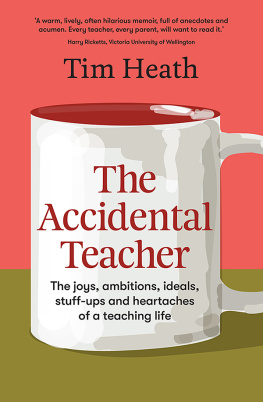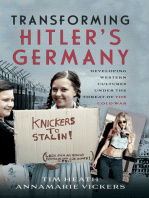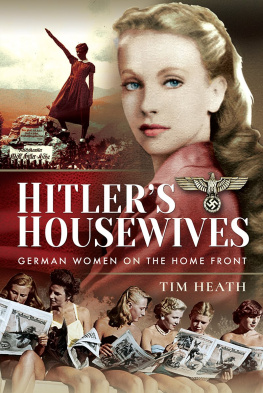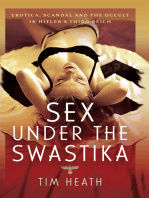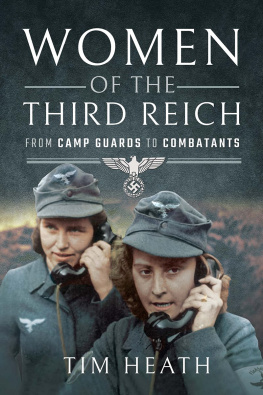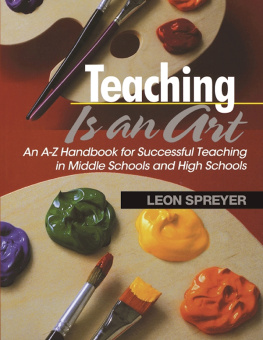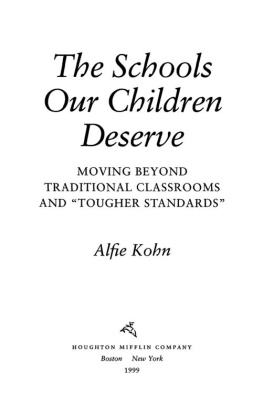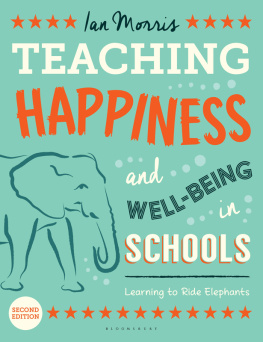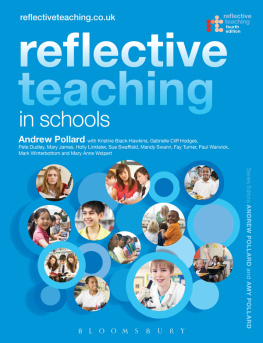
I BELIEVE I HAVE been a positive influence in the lives of many children, and this gives me satisfaction, albeit a satisfaction to be balanced against knowing that there were many children for whom I was not the right person. I feel sad and guilty about those who were in my care during the years in which I struggled to survive and did not have enough left in me to be a proper teacher.
I want more people to become teachers.
We are, all of us, already teachers in one way and measure or another. This is true especially of parents, but also of everything we do with workmates, with kids in sports teams, with the driver who turned right when he had indicated left, with people who voted for the other party and who think they can be convincing when they have only half the facts.
I want more people to go to teachers colleges and work towards having groups of children to be with, and to learn with and from. I want this because teaching, despite the conflicts and disappointments catalogued in this book, has for me been a source of joy well, intermittent joy. The joy is being with someone when their brain lines up all the ducks necessary to be able to read, or to become comfortable with numbers, or to run around the block faster than ever before.
I have spoken with several young teachers currently beavering away at what we used to call the chalk face, a term like so many that has become redundant in my lifetime. They spoke of a disconnect with management. They seemed to accept a regime of test, evaluate and report that would have driven me to despair. They know they are not allowed to take children outside every hour, or catch the equivalent of the Farmers free bus, or go anywhere, for that matter, without filling in many forms and enlisting an army of helpers. We spoke about salaries. They expressed deep frustration that the job they spend sixty to seventy hours a week trying to satisfy does not enable them to buy a house, as I had, for twice their annual salary.
Despite all this, they talked of their love of being with children. They might not yet have understood that through their work they were supposed to solve the shortcomings of parents and the ills of society. Their joy at seeing children learn burned brightly and will continue to do so for that finite period of time in which they will be the best of teachers.
I want our society to honour and trust them, to pay them enough to house themselves, to recognise what they know and what is in their hearts without insistence on regimes that stifle their creativity and reduce children to measurable units. I want art in the morning, maths in the afternoon and music all day long. I want children to run with the same exuberance with which my dog runs, just for the delight of it. And then I want them to run a bit further and faster the next day. I want all children and teachers to look at other children and to be able to say, despite what failings and difficulties they have, She or he is just a regular kid. I want them to be able to yell and shout at each other in at least the two languages of Aotearoa. I want them to walk to school.
I want chronological age to be ignored, learning to read to be a leisurely process, and the legacy of the missionaries left to rest in peace.
I want kids to again be allowed to play bullrush.
I HAVE, FOR the most part, used real names of children and adults. In these cases, my words and feelings about them are (and were) positive. I trust that if these people read the book, seeing their names will cause them to smile.
Some names, however, have been changed. This is because what I have written could be construed as critical, or the person is, in fact, based on several people. There are other cases when, much to my shame, I have had to use a made-up name because I have forgotten the real one.
IT HAS BEEN often said perhaps too often that it takes a village to raise a child. If this is true, and I believe it is, then it is also true that it takes a small town to support the author of a book. I intend to name and thank fellow citizens of this town, all of whom, in one way or another, made the creation of this book possible.
This list starts, as it always must, with family. I thank Deb, who is always encouraging, albeit at times with comments like Why are you attempting to repair that mower/fence/leaking tap/hole in the wall? You write so well, but fixing things? Perhaps not Despite being a psychiatrist, she clearly doesnt fully understand procrastination. It is also true that the fact Deb has a proper job means I have time to write and to attempt to fix things. Our children, if that term can be used for successful grown-up people, have given practical advice and shown unwarranted faith in my abilities. I thank Peter, Mardi, Lope, Sharon, Rupert and Sophie. Sophie was a promising critical reader until my baby granddaughter Rory made it clear that reading was a luxury not permitted to young mothers.
I have been a member of a writing group that grew, some twenty years ago, out of classes run by the late David Lyndon Brown. Davids example and his gentle teaching gave me belief that my enthusiasm for writing, expressed up until that point only through school newsletters, was not a waste of time. This group Sally Monks, Barbara Austin, Tony OBrien and Christine Tyler have provided invaluable critical comment along the way. The insightfulness of these comments and the encouragement embodied in the group have been hugely helpful.
My second writing group, known as Klatch, grew out of the Masters in Creative Writing course conducted by John Cranna in 2008. At this course I met Rod Fee, Judith White, Katie Henderson, Ann Glamuzina and Karen Breen. These people have become not just writing buddies, but also close friends. We try to meet once a week for coffee, writing, criticism of writing and gossip. If I have grown as a writer, thanks have to go to this group. Under Rods leadership, they formed the successful and innovative Eunoia Publishing Group, which published my poetry collection Not as the Crow Flies in 2018. This collection was edited by Judith White, from whom I continue to learn so much. I thank Josephine Stanton and Juliet Batten for invaluable reading and comments.
Poetry, in many ways my first love, has contributed much to whatever skills I have as a writer. I am indebted to Poetry Live, the weekly pub-based poetry evening that has lurched along on its riotous way for the past forty years. It is a collection of like (and unlike) minds, always willing to lend an interested ear to new poets and to delight, usually, with their own work.
Audience response is a forge that encourages and disciplines. I want to thank two heroes of the Auckland performance poetry scene: Penny Ashton and Ken Arkind. Penny, herself a superb performer, was the organiser and irreverent MC of the famous Poetry Idol Slam that was, for many years, such a feature of the Auckland Writers Festival. This evening of competitive poetry was a fearful but uplifting challenge for people like me, who are (or were) more accustomed to poetry as a fireside activity. Ken continues to be an ambassador for poetry, encouraging so many young folk to write and giving older ones a stage to stumble on. And I cannot mention poetry without mentioning my dear friend and poet Penny Somerville, who has read so much of my work, nodding sagely sometimes in approval.
Jenny Hellen, publishing director at Allen & Unwin, asked me to write this book and organised proper writerly things like contracts, deadlines and advances. I think only writers will fully appreciate the implications of that sentence and the words asked me. Writers are wallflowers, seldom asked, and so grateful when they are. Jennys encouragement along the way has been invaluable, as was the selection of Jane Parkin to edit the book. Stephen King allegedly once said All editors are divine! This may or may not be true, and it does hint at their power, but it is unarguably true that Jane, with her skill, perception and ability to correct without diminishing, is a literary angel. Senior editor Leanne McGregor has applied the same excellence to the book, in the relentless pursuit of accuracy and completeness.
Next page
